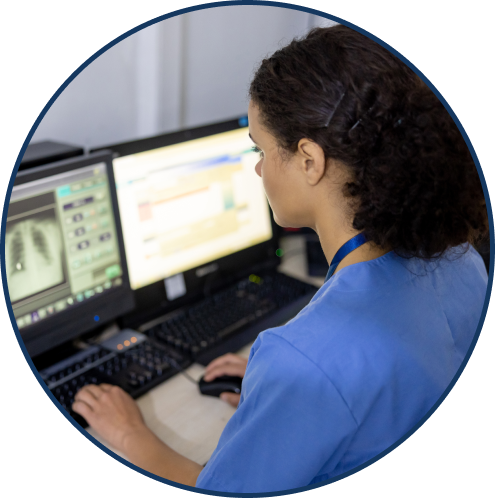Our evidence

Being rooted in evidence-based practice is integral to BMJ’s ethos and constitutes one of our core values. BMJ is committed to fostering a culture of evidence-based decision-making.
At BMJ Digital Health, our dedicated team of in-house information specialists search the literature for high quality new and updated guidelines and systematic reviews, as well as tailoring bespoke searches to support our knowledge graph.
In recent years, the BMJ Digital Health team has engaged in extensive research with healthcare professionals worldwide, aiming to grasp the nuances of evidence utilization in their daily practice. It became evident that healthcare professionals seek a centralized hub for evidence-based solutions to pertinent clinical queries, facilitating informed decision-making at the point of care or at the population level. Our commitment lies in providing continually updated and reliable evidence swiftly and succinctly, accompanied by transparent assessments of evidence quality.

Some have estimated that it takes up to 17 years for a new notable and clinically valid innovation to be generally adopted and applied in healthcare.
Dr. Blackford Middleton, Digital Knowledge Products Consultant, and Dr. Kieran Walsh, Clinical Director, BMJEvidence processes
Our robust evidence processes include:
![]() Routine scheduled evidence updates
Routine scheduled evidence updates
![]() Surveillance for new practice-changing evidence and for drug alerts
Surveillance for new practice-changing evidence and for drug alerts
![]() Quality assurance.
Quality assurance.
Routine scheduled evidence updates
We prioritize our most popular content and those where there are rapid changes in research for more frequent routine updates.
Where there is an exceptional need for important changes to be made particularly rapidly, such as during the Covid-19 pandemic, updates may occur on a weekly basis.
Updates for high priority content starts with a medical database literature search by our experienced information specialists, focussing on relevant systematic reviews and guidelines. Section editors, trained in critical appraisal, appraise the evidence and work with expert contributors to select new evidence for inclusion and to make changes to update the existing content.
Our ongoing evidence surveillance process
In addition, evidence updates may be triggered at any time by evidence retrieved from our ongoing surveillance process. This includes:
-

Surveillance for high quality new and updated international guidelines, policy statements, and potentially practice-changing systematic reviews and randomized controlled trials
-

Prompt evaluation of new evidence by our specialist section editors
-

Continuous scanning and triaging of drug alerts by our inhouse pharmacists
-

Monitoring and triaging of user/customer feedback by our specialist section editor